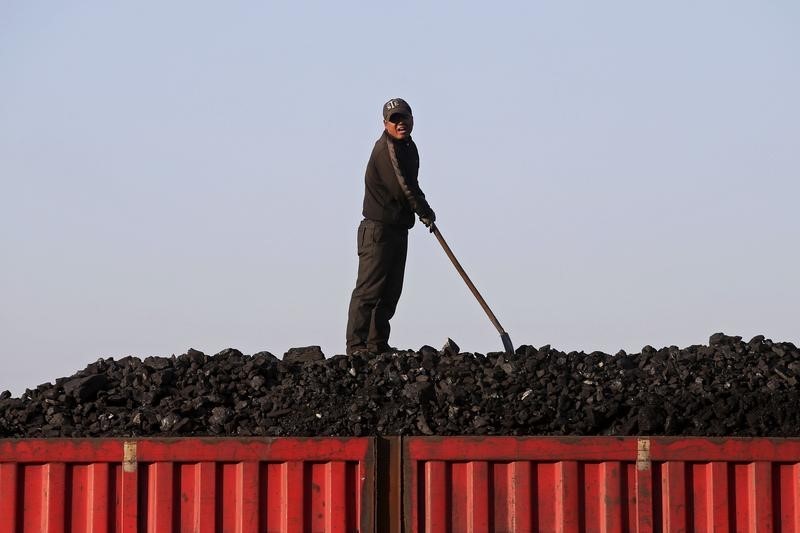(Repeats item issued earlier. The opinions expressed here are those of the author, a columnist for Reuters.)
* Graphic of China's coal imports: http://tmsnrt.rs/2lj1BS0
By Clyde Russell
LAUNCESTON, Australia, March 1 (Reuters) - Bullish and cautious aren't usually words found in the same sentence, but it appears that coking coal miners are upbeat about the prospects for the steel-making fuel, though not to the extent of choking off price gains with increased supply.
Witness the comment from Don Lindsay, chief executive of Canada's Teck Resources TECKb.TO , North America's largest producer of coking coal and the second-biggest seaborne exporter.
"I'm feeling excited," Lindsay told Bloomberg Television on Monday while attending a conference in the U.S. state of Florida, noting that coking coal prices have turned around in the last 10 days, with forward prices gaining.
Australian free-on-board coking coal prices rose to $158.70 a tonne in the week to Feb. 24, up 5.8 percent on the prior week, although still well below $255 a tonne at the end of last year.
But after being bullish, Lindsay turned cautious.
"In this business, if you add too much capacity you put the market into surplus and you hurt the whole rest of your production," Lindsay said. "If we brought out another 3 to 4 million tons and ended up causing a price reduction, you can't make the money back."
Teck has the ability to add to its output, but is waiting for the steel industry in India to take off, as well as watching policy developments in China.
CHINA STILL THE KEY
China remains key for the outlook for coking coal, with policy decisions likely to drive both short- and medium-term prices.
China's approach to economic growth will be crucial for steel demand, with the market watching to see if Beijing will continue measures to stimulate infrastructure spending and construction, while at the same time shutting down excess steel capacity.
Policies around coking coal will also be pivotal as China tries to limit pollution and appears to take a harder line on North Korea, its nuclear-armed neighbour and a major source of high-quality coal.
China imported 1.45 million tonnes of coal from North Korea in January, down 28 percent from December, as U.N. Security Council sanctions came into effect. January imports account for almost 20 percent of the annual total China is allowed to import from North Korea.
However, Beijing said on Feb. 18 that it would immediately ban all imports of coal from its volatile neighbour. Although no reasons were cited, the move came after Pyongyang tested an intermediate-range ballistic missile and the apparent assassination in Malaysia of Kim Jong-nam, the half-brother of ruler Kim Jong-un.
If China does stop importing North Korean coal, it creates a potential shortfall of around 20 million tonnes of coking coal, using the 22.48 million tonnes imported in 2016 as a guide.
To put that figure in perspective, BHP Billiton (LON:BLT) BHP.AX , the world's biggest exporter of coking coal, produced 21 million tonnes of the fuel in the half year to December.
BHP said in its half-yearly report on Feb. 21 that it is keeping its production guidance for coking coal unchanged at 44 million tonnes for the 2017 financial year.
It's quite likely that BHP could increase its output, or commit to doing so, but similar to Teck, it chose to express caution on the outlook, saying in its results presentation that the "application of China's coal supply reform policy is a source of short-term uncertainty."
It seems that for now at least, the major coking coal producers like what they see, but aren't quite convinced enough to place a bet by boosting output.
<^^^^^^^^^^^^^^^^^^^^^^^^^^^^^^^^^^^^^^^^^^^^^^^^^^^^^^^^^^^ China's coal imports
http://tmsnrt.rs/2lj1BS0
^^^^^^^^^^^^^^^^^^^^^^^^^^^^^^^^^^^^^^^^^^^^^^^^^^^^^^^^^^^> (Editing by Richard Pullin)
